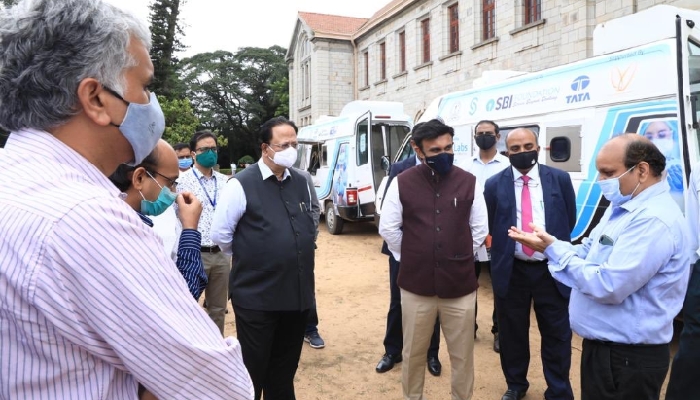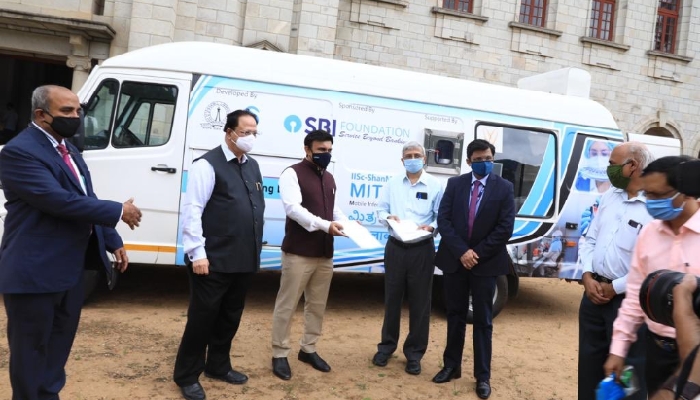Kasaragod/Mangaluru, Mar 13: The Indian National Congress, which has been trying to wrest Kasaragod Lok Sabha constituency from the Communist Party of India (Marxist) for past three decades, is reportedly mulling to field U T Ifthikar Ali, younger brother of Karnataka’s minister for urban development and Dakshina Kannada district in-charge U T Khader, in the 17th Lok Sabha elections. The coastal district of Kerala will go to polls on April 23.
According to party sources, Ifthikar’s name is among a few shortlisted Congress leaders’ names being considered by the high command to be fielded from Kasaragod. The list of aspirants from this segment also includes former Kasaragod MP B Rama Rai, senior advocate Subbaiah Rai and former Kannur MP Abdulla Kutty.
In 2014 Lok Sabha polls Congress had lost to CPI (M) leader P Karunakaran with a small margin of around six thousand votes in Kasaragod, which has around 13.5 lakh voters including around 60 percent of Hindus and 30 percent of Muslims. Hence Congress is likely to prefer Ifthikar, whose family is known for promoting secularism and communal harmony in coastal Karnataka, sources said.
Even though Ifthikar, who is the Syndicate member of the prestigious Rajiv Gandhi University of Health Sciences, Karnataka, is currently based in Mangaluru, he is not a stranger for the people of Kasaragod district as his family hails from Uppala region.
On the other hand Kasaragod too shares close ties with Mangaluru. In fact prior to the implementation of States Reorganisation Act, 1956, the present Legislative Assembly seats of Manjeswar, Kasaragod, Udma and Kanhangad in Kasaragod district were part of South Kanara (South) LS constituency of erstwhile Madras State. In 1956, South Kanara (South) LS constituency was replaced by Mangaluru LS constituency, which gradually became Dakshina Kannada constituency. The parts of Kasaragod and Hosdurg (Kanhangad) seats were merged with Kerala and became a part of Kasaragod LS constituency. Kasaragod still has a considerable number of Kannadigas that share an emotional bond with Karnataka.
Despite, hailing from a politically influential family, Ifthikar has so far refrained from electoral politics. However, elections are not new for him. He has been the “poll strategist” for his elder brother who has registered four successive victories in Mangaluru assembly constituency after the demise of his father and four-time MLA U T Fareed in 2007. Besides, Ifthikar enjoys close contact with several bigwigs of Congress including its supremo Rahul Gandhi and former union minister Ghulam Nabi Azad. He also has maintained a good relationship with several prominent NRI businessmen from Kasaragod district and heads of educational institutions, hospitals in the region.
He is also a known personality in health, social, educational fields in costal belt of Karnataka and is president of Dakshina Kannada Physiotherapy Teachers Association, Sport & Fitness Training Federation of India and executive committee member of the Indian Association of Physiotherapy. As chairman of U T Fareed Foundation, he has undertaken many charity activities. Being a social activist he is involved in various social service activities.
While contacted, Ifthikar told coastaldigest.com that he has been associated with Congress since his college days and that he would not hesitate to jump into poll fray from Kasaragod if the party high command wishes. “I will abide by the high command’s decision,” he said.






Comments
Kasargod will witness real development if a Kannadiga becomes its MP. Malayalees are showing step-motherly attitude towards the people of Kasargod.
Not a bad choice. Kasaragod also need some respite from communist politics. Let Congress field this handsome gentleman.
UTI is the best choice for Kasaragod district. Efficient and people friendly.
Add new comment